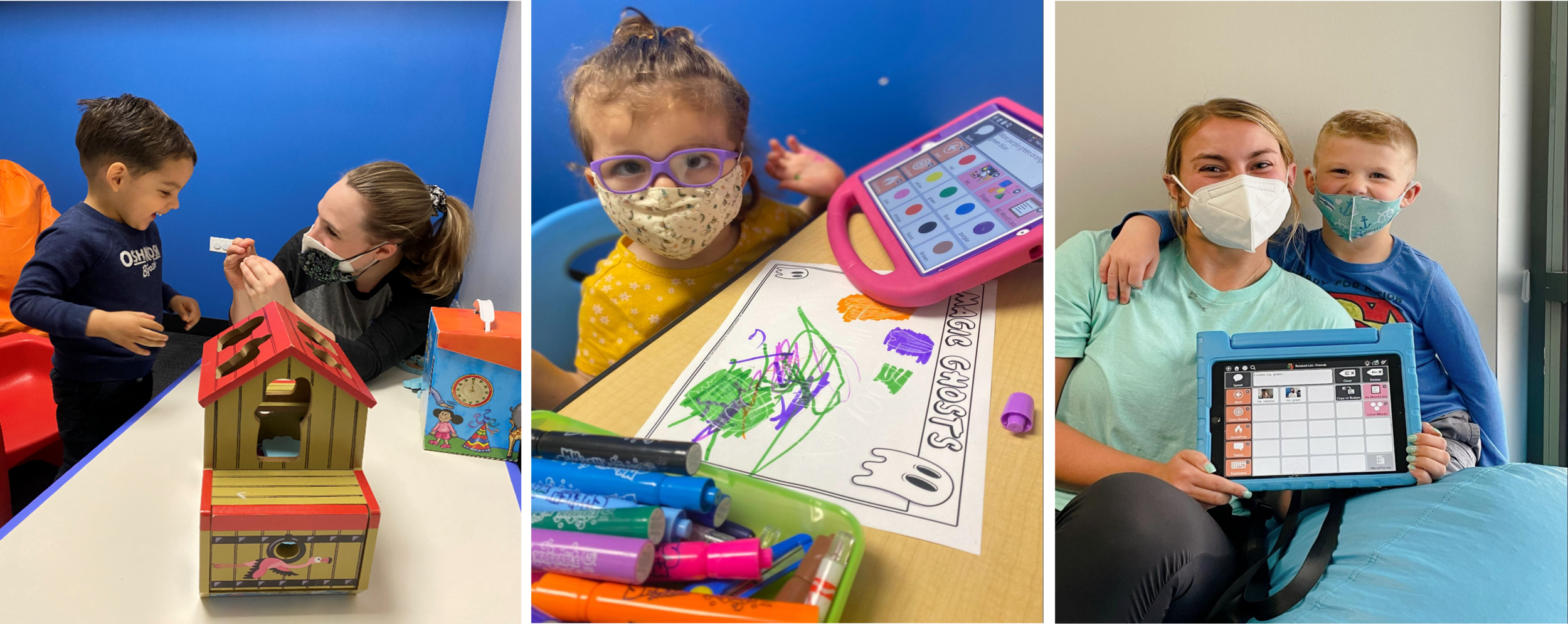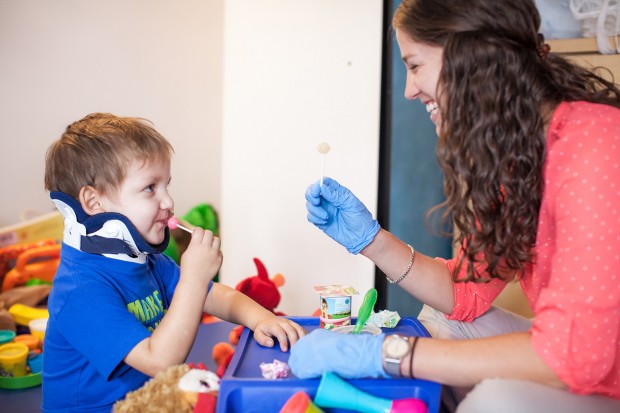Exactly How a Speech Pathologist Can Aid Improve Communication Skills
Reliable interaction is a keystone of professional and personal success, yet numerous people face difficulties that prevent their capacity to share themselves clearly. A speech pathologist is equipped to address these obstacles through targeted evaluation and treatment approaches tailored to each person's needs.
Recognizing Communication Conditions
Recognizing interaction conditions is necessary for recognizing how they impact people' capacity to reveal themselves and involve with others. Communication disorders incorporate a wide variety of difficulties that impact speech, language, and social interaction, usually hindering efficient communication. These problems can develop from numerous factors, consisting of neurological problems, developmental delays, physical disabilities, or mental problems.
Speech disorders might materialize as problems in expression, voice, or fluency production, affecting just how words are obvious or talked. Language conditions, on the other hand, include obstacles in understanding or making use of language, which can restrain both spoken and non-verbal communication. Social interaction disorders are identified by difficulties in the pragmatic elements of communication, such as taking turns in discussion or understanding social hints.
The effects of interaction conditions are extensive, affecting not just the individual's capacity to share ideas and emotions yet additionally their social connections, academic opportunities, and overall top quality of life. Understanding of these problems can foster empathy and assistance, motivating reliable strategies for interaction and engagement. Recognizing the complexities of interaction problems is a vital step towards promoting inclusivity and dealing with the demands of those influenced.
Role of a Speech Pathologist
Speech pathologists regularly play a crucial duty in identifying and treating interaction conditions, using a variety of evidence-based techniques customized per person's requirements. These specialists deal with people across the lifespan, from children with speech delays to grownups recuperating from strokes or distressing mind injuries. Their experience encompasses a selection of interaction issues, including expression, fluency, language, and voice problems.
In therapeutic settings, speech pathologists use structured treatments designed to enhance communication skills. They may apply strategies such as speech workouts, language video games, and social communication training to facilitate enhancements in meaningful and receptive language capacities. Speech Pathologist. In addition, they enlighten clients and their families about effective interaction strategies and flexible techniques to navigate daily interactions
Beyond straight treatment, speech pathologists collaborate with various other health care experts, caretakers, and educators to guarantee a detailed strategy to treatment. They support for clients by offering sources and assistance, enabling individuals to achieve their communication goals and boost their overall lifestyle. As professionals in the area, speech pathologists are important in cultivating efficient communication, advertising freedom, and enhancing social participation for those with communication challenges.
Assessment and Diagnosis Refine
The analysis and medical diagnosis process performed by speech pathologists generally involves a thorough analysis to recognize interaction disorders accurately. This procedure begins with a comprehensive medical history, where the medical professional gathers relevant information about the individual's medical, educational, and developing history. Comprehending the context of the individual's communication difficulties is essential for an accurate medical diagnosis.
Adhering to the situation background, speech pathologists use standardized tests and informal analyses to examine various elements my website of interaction, consisting of speech noise manufacturing, language comprehension, expressive language, and social interaction abilities. These assessments are customized to the person's age and details worries, providing beneficial information for analysis.
Observation is also a critical part of the evaluation procedure, as it allows the clinician to see firsthand exactly how the specific interacts in all-natural setups. Additionally, interviews with relative and teachers can give understanding into the individual's interaction challenges across various environments.
As soon as the evaluation is total, the speech pathologist synthesizes the findings to determine a diagnosis and recommend ideal treatments. This complete assessment process makes sure that people obtain targeted assistance tailored to their distinct interaction requirements, laying the structure for effective healing strategies.
Healing Methods and Approaches
Numerous healing methods and techniques are employed by speech pathologists to attend to a selection of interaction disorders successfully. One widely utilized approach is articulation treatment, which concentrates on remedying speech appears through rep and aesthetic cues. This technique is particularly helpful for people with speech audio conditions.
Another reliable approach is language treatment, which improves both meaningful and receptive language abilities. This might involve interactive activities that promote vocabulary growth, syntax understanding, and conversational abilities. In addition, speech pathologists frequently make use of social abilities educating to enhance pragmatic language capacities, making it possible for people to browse social communications more successfully.
Fluency shaping and stuttering modification strategies are particularly developed to aid those experiencing fluency conditions. These approaches help customers establish smoother speech patterns and manage the psychological and physical parts of stuttering.
Furthermore, alternate and augmentative communication (AAC) systems are utilized for people with severe interaction impairments. These systems, which can include gestures, signs, or digital gadgets, provide important support for effective communication.
Benefits of Speech Therapy

Additionally, speech treatment can assist in creating crucial listening and understanding abilities, promoting much better interaction in conversations. Individuals with cognitive-communication disorders can also benefit, as treatment concentrates on strengthening memory and analytical capacities, important for efficient interaction.
One more vital element is the psychological support provided during treatment sessions. Speech pathologists produce a safe atmosphere, motivating people to overcome stress and anxiety and irritation pertaining to their interaction concerns. This assistance can bring about enhanced self-worth and overall mental wellness.
Moreover, very early intervention through speech treatment can protect against additional difficulties, ensuring that people reach their full communicative potential. Generally, the benefits of speech therapy prolong beyond simple speech improvement, positively affecting various measurements of life for those impacted by interaction troubles.
Final Thought
In recap, speech pathologists play a critical role in resolving communication problems with analysis, medical diagnosis, and customized therapeutic treatments. By using evidence-based techniques, these professionals enhance people' speech and language abilities, cultivating boosted clearness, fluency, and social communication abilities. The benefits of very early intervention emphasize the relevance of looking for support from speech pathologists, as their knowledge can substantially boost communicative possibility, inevitably bring about greater success in both expert and personal spheres.

Speech pathologists often play an important role in dealing with and detecting interaction disorders, employing an array of evidence-based techniques try here tailored to each individual's demands. As professionals in the field, speech pathologists are vital in promoting reliable interaction, promoting self-reliance, and improving social involvement for those with interaction difficulties.
